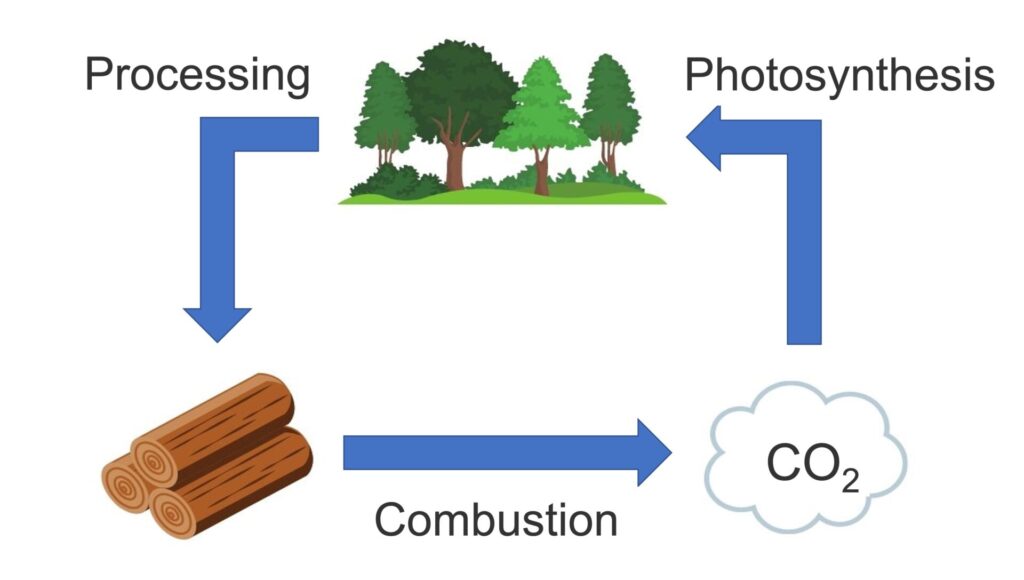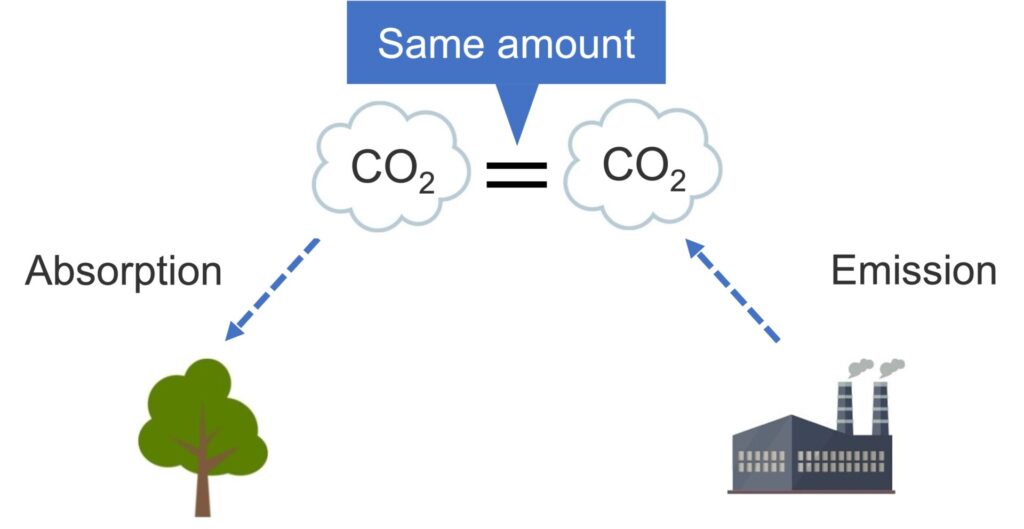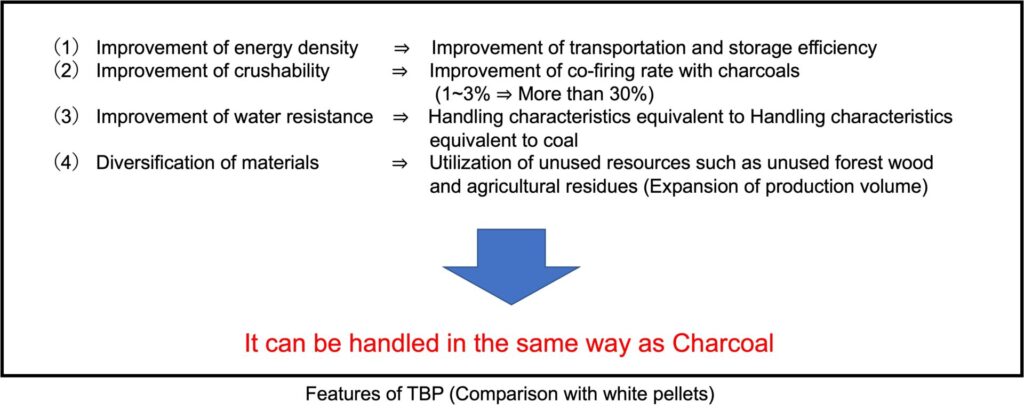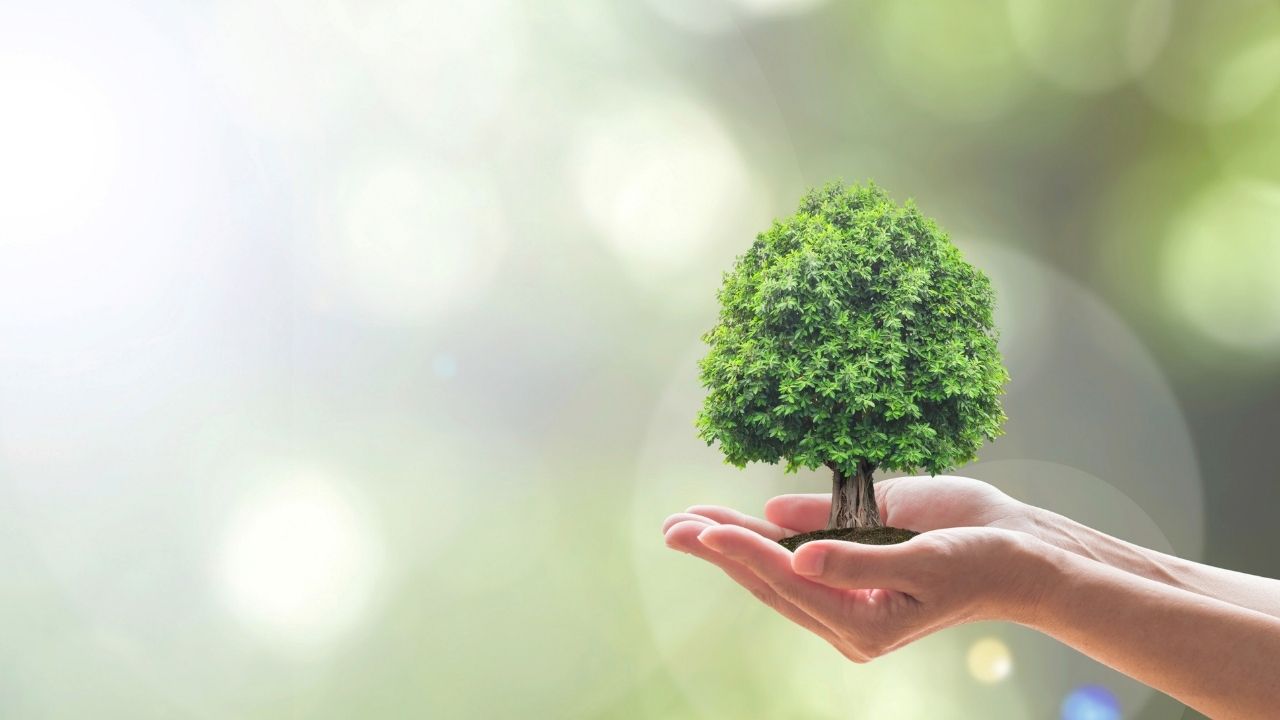Biomass fuel business
In Japan, various goals have been set in order to achieve “virtually zero greenhouse gas emissions by 2050”.
In this context, KKYE will promote the biomass fuel business with the aim of “providing Japan with a stable supply of fuel needed for biomass power generation” by cultivating sorghum, the raw material for biomass fuel, and processing it into black pellets for long-term stable supply to Japan.
Even if the price of imported pellets rises in the future due to a sharp rise in the price of raw materials, this will be a sustainable business that can be supplied to Japan at a stable price, because we grow the plants (sorghum), the raw material for biomass fuel, ourselves.
Carbon Neutral and Biomass
Plants emit CO2 when they burn, but they absorb CO2 from the atmosphere through photosynthesis during the growth process, so CO2 becomes plus or minus zero through emission and absorption.
This way of thinking about the carbon cycle is called carbon neutral.
Since biomass power generation uses carbon-neutral plants as fuel, it is said to be “carbon-neutral” as it has no effect on CO2 increase or decrease during combustion.


Black pellets (semi-carbonized wood pellets) and
Torrefaction
Black pellets are wood pellets that have been semi-carbonized (Torrefaction). Semi-carbonized wood pellets are wood pellets with high carbon content, which are made by heating woody biomass and stopping the carbonization process halfway before it becomes charcoal, removing as much water as possible that does not contribute to combustion.
The energy density per weight and volume of black pellets (semi-carbonized wood pellets, torrefaction pellets) depends on the progress of carbonization, because the energy as pyrolysis gas is slightly reduced by semi-carbonization, but the weight and volume are also reduced. Taking semi-carbonized wood pellets with a mass loss of about 30% as an example, the energy density per weight is about 1.3 times that of wood pellets, and the energy density per volume is about 1.5 times that of wood pellets.
Black pellets (semi-carbonized wood pellets, torrefaction pellets) are as hydrophobic ascharcoal and more resistant to water than wood pellets, so they do not change their properties even when immersed in water and have the same handling characteristics ascharcoal, so there is no need to invest in new storage facilities.
In addition, black pellets (semi-carbonized wood pellets, torrefaction pellets) have improved crushability, and can be mixed withcharcoal at a much higher co-firing rate of more than 30%, compared to less than 3% for wood pellets.
Thus, black pellets (semi-carbonized wood pellets, torrefaction pellets) are considered to be an excellent biomass fuel with higher energy density, water resistance, and crushability, higher transportation and storage efficiency, and easier handling than wood pellets.
Energy density per weight LHV (kcal/kg)
| Wood pellets (white pellets) | 3,272 ~ 3,846 kcal/kg |
| Black pellets (TBP) | 4,153 ~ 4,933 kcal/kg |
| Charcoals | 5,375 ~ 6,705 kcal/kg |
General properties of TBP (Comparison with white pellet and Charcoal)
| White pellet | TBP | Charcoal | |
| Moisture:wt% AR | 7-10 | 1-5 | 10-15 |
| Fixed carbon:wt%DB | 20-25 | 28-35 | 50-55 |
| bulk density:kg/m3 | 550-650 | 650-750 | 800-850 |
| Energy density:Mcal/m3 | 1800-2500 | 2700-3700 | 4300-5700 |
| Relationship with Water | Hydrophilicity | Hydrophobicity | Hydrophobicity |
| Fermentation and decomposition | Careful | No | No |
| Feeding into the mill | Restrictions | Normal | Normal |

Cited by JOGMEC

Solghum
Sorghum is a large grass crop native to northeastern Africa that is resistant to high temperatures and drought, and its small genome size makes it amenable to genomic breeding methods.
KKYE will cultivate the improved and experimentally grown “sorghum” as biomass fuel by utilizing idle land and unused farmland in Vietnam.
Sorghum cultivation in Vietnam has shown results in fast growth and up to three harvests per year.

KKYE’s efforts for long-term stable supply (quality, quantity, price) of sustainable biomass fuel
KKYE will grow the plants (sorghum) that will be the raw material for the biomass fuel, and process the black pellets in-house to ensure a stable supply to Japan over the long term.

KKYE will always adopt competitive technology from sorghum cultivation to black pellet processing.
Please feel free to contact us if you have any questions or comments.
We can also provide you with a stable supply of biomass fuel (black pellets, wood pellets, etc.).




